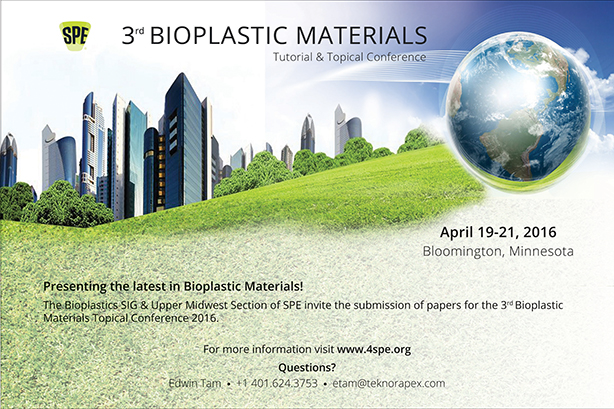The Slow Road to All-Bio-PET
Previous Article Next Article
The Slow Road to All-Bio-PET
Previous Article Next Article
The Slow Road to All-Bio-PET
Previous Article Next Article
Users of biopolymers ultimately would like them made from waste biomass, not from corn or other food sugars—but cellulosic conversion is more expensive. At least six companies have active R&D that could lead to 100% bio-PET, some with biomass conversion. Coke has given R&D support to four: Avantium, Gevo, LiquidLight, and Virent.
Avantium Technologies B.V. in Amsterdam, the Netherlands ( www.avantium.com), originally a spinoff from Royal Dutch Shell, developed PEF (polyethylene furanoate), a bio-polyester with high oxygen and moisture barriers for packaging. Avantium has had an 80,000 lb/yr (36,000 kg/yr) pilot plant for PEF since 2012.
Gevo Inc., Englewood, Colorado ( www.gevo.com), in 2012 converted an ethanol plant in Luverne, Minnesota, to produce bio-isobutanol and -ethanol. Gevo runs one fermenter for bio-isobutanol, with capacity for about 5 million lb/year (2.3 million kg/yr), and three fermenters for bio-ethanol. Gevo licensed the technology in 2015 to Praj Industries Ltd. in Pune, India ( www.praj.net), for use with non-corn-based ethanol processes, and has memos of understanding with two other companies for potential licenses. Gevo makes bio-isobutanol into bio-paraxylene in a 4400 lb/year (2000 kg/yr) pilot plant in Silsbee, Texas, and supplies test quantities to Toray Industries Inc. in Tokyo, Japan ( www.toray.com), for bio-content PET fiber.
Liquid Light Inc., in Monmouth Junction, New Jersey ( www.llchemical.com), a spinoff from Princeton University, claims over 100 patents and patent applications for artificial photosynthesis to convert waste CO2 from ethanol production into MEG and other chemicals. Liquid Light reportedly expects to have a pilot plant in Canada this year for its electrolytic nano-catalyst conversion technology (U.S. Pat. App. 20110114502).
And Virent Energy Systems Inc., in Madison, Wisconsin ( www.virent.com), uses a proprietary “Bioforming” process that mixes hydrogen with an aqueous sugar solution, then catalytically converts that “reformat” into bio-paraxylene in a 12,000 lb/yr (5500 kg/yr) pilot paraxylene plant, reportedly the world’s largest. Virent supplied bio-paraxylene for Coke’s production run of 100% bio-PET test bottles shown in Italy last year.
